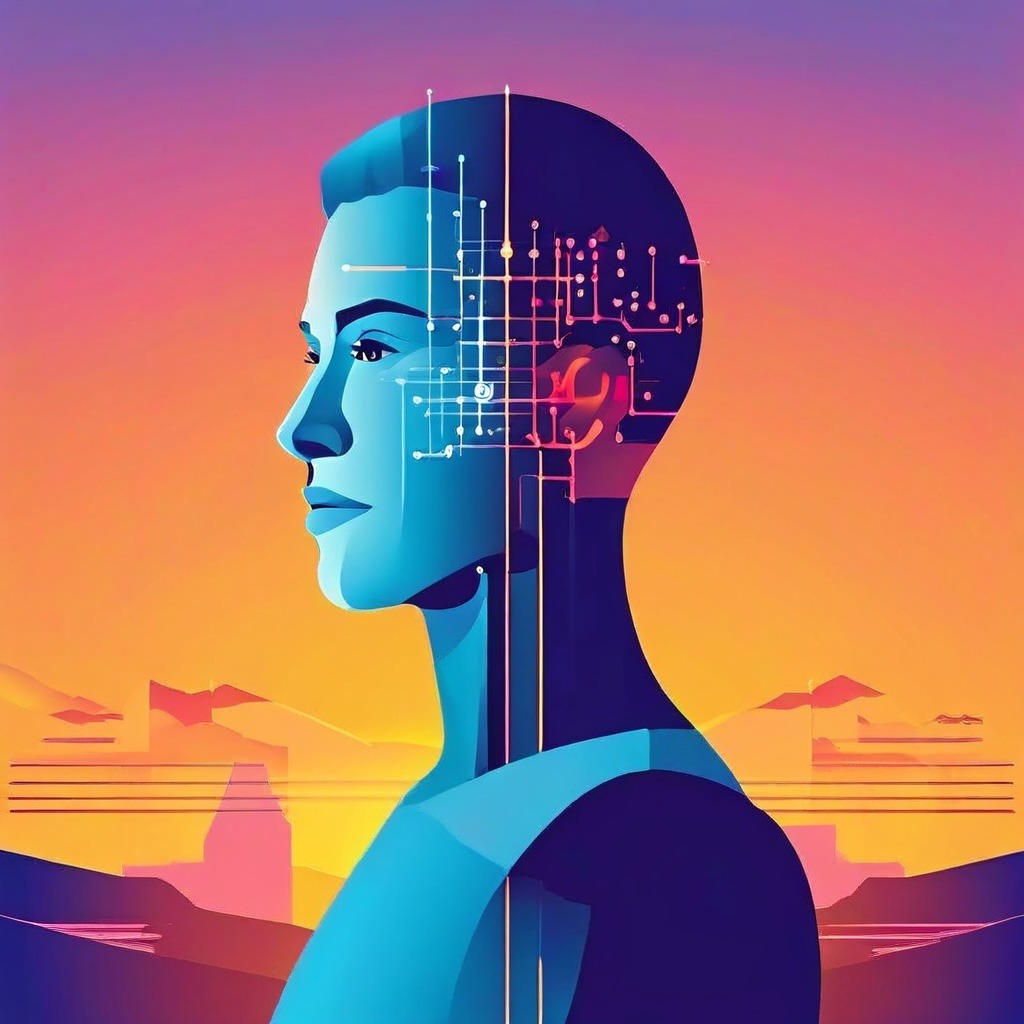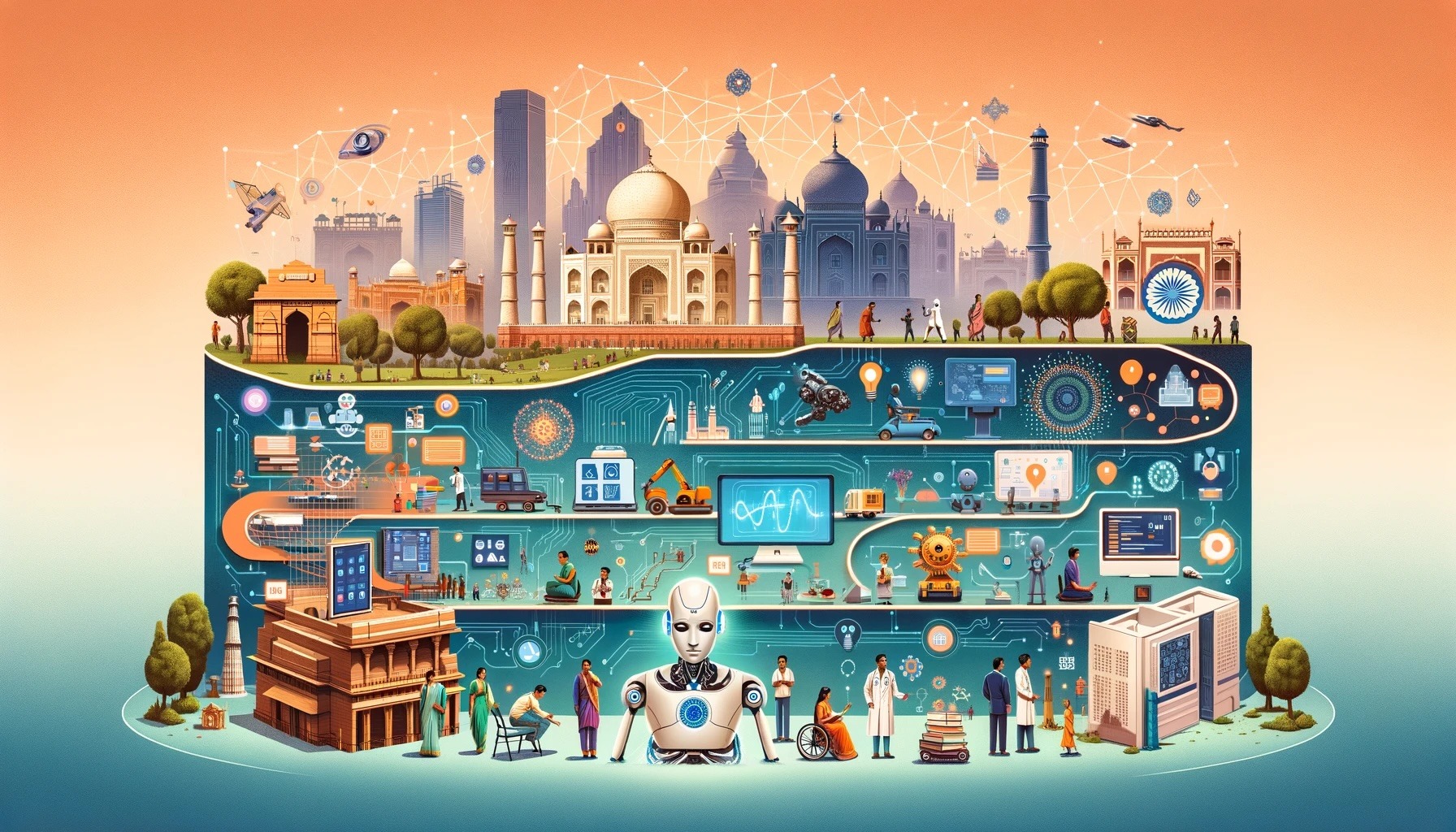Artificial intelligence (AI) is rapidly transforming industries across the globe, and the United States is at the forefront of this technological revolution. With its thriving tech hubs and world-class universities, the U.S. offers a wealth of opportunities for skilled AI professionals. Whether you’re a recent graduate looking to break into the field or an experienced professional seeking to advance your career, this ultimate guide to AI jobs in the U.S. is here to help.
Understanding the Artificial Intelligence (AI) Landscape
Before we delve into specific job roles, let’s get a sense of the broad AI landscape in the U.S.:
- Major Tech Hubs: Silicon Valley, New York City, Boston, Seattle, and Austin are well-known centers of AI innovation, housing major tech companies, startups, and research institutions.
- Industry Leaders: Technology giants like Google, Amazon, Microsoft, Meta (Facebook), and Apple are significant investors and employers within the AI domain.
- Beyond Tech: Industries like healthcare, finance, manufacturing, and retail are aggressively adopting AI technologies, creating a diverse range of job opportunities.
Key AI Job Roles
Now, let’s explore some popular and in-demand AI career paths:
- Machine Learning Engineer: These professionals are responsible for designing, building, and deploying machine learning models. They work with data, algorithms, and frameworks to develop AI systems that can learn from data and make predictions or decisions.
- Data Scientist: Data scientists collect, clean, analyze, and interpret large datasets to find patterns and insights. They apply statistical techniques, machine learning models, and visualization tools to extract knowledge that informs business decisions and powers AI applications.
- AI Research Scientist: AI researchers explore the frontiers of technology. They develop new algorithms, architectures, and theoretical foundations to advance the capabilities of AI systems. This role often requires a Ph.D. and deep expertise in areas like machine learning, deep learning, or computer vision.
- Natural Language Processing (NLP) Engineer: NLP engineers specialize in building systems that can understand, interpret, and generate human language. They are involved in developing chatbots, virtual assistants, language translation tools, and more.
- Computer Vision Engineer: Computer vision engineers focus on enabling machines to “see” and understand the world through images and videos. They work on applications for image recognition, object detection, autonomous vehicles, and medical image analysis.
Essential Technical Skills for AI Jobs
While the specific skills required vary by role, here’s a core skillset most AI jobs demand:
- Programming: Proficiency in Python is highly recommended, along with libraries like NumPy, Pandas, and Scikit-learn. Experience with deep learning frameworks like TensorFlow and PyTorch is a significant advantage.
- Mathematics/Statistics: Solid understanding of linear algebra, calculus, probability, and statistics is fundamental for machine learning.
- Data Manipulation and Visualization: Ability to work with large datasets, clean and preprocess data, and visualize results (libraries like Seaborn, Matplotlib).
- Machine Learning Algorithms: Knowledge of supervised and unsupervised learning algorithms, decision trees, support vector machines, neural networks, etc.
- Cloud Computing: Familiarity with major cloud platforms (AWS, Azure, Google Cloud Platform) is becoming increasingly valuable.
Beyond Technical Skills: Soft Skills Matter
Success in AI careers requires more than just technical expertise. Here are crucial soft skills:
- Problem-solving: The ability to break down complex problems, identify solutions, and evaluate trade-offs.
- Communication: Effectively explaining complex technical concepts to both technical and non-technical audiences.
- Collaboration: Working effectively in teams that often involve engineers, data scientists, and product managers
- Curiosity: Being passionate about AI and having a continuous desire to learn and adapt in this fast-paced field.
How to Land Your Dream AI Job in the U.S.
The AI job market is competitive. Here’s how to make yourself an attractive candidate:
- Build a Portfolio: Showcase your skills through personal projects on platforms like GitHub. Demonstrate your ability to apply AI concepts to real-world problems.
- Network and Get Involved: Attend industry events, meetups, and conferences. Connect with AI professionals on platforms like LinkedIn. Building a strong network can open doors to opportunities.
- Tailor Your Resume: Highlight your AI-relevant skills and projects. Use keywords from job descriptions to align your resume with specific positions.
- Practice Interviewing: Research common AI interview questions and practice your responses, focusing on explaining technical concepts clearly and demonstrating real-world applications of your knowledge.
- Consider Higher Education: While not always a strict requirement, advanced degrees (Master’s or Ph.D. in CS, Data Science, or AI-related fields) can significantly improve your competitiveness for some positions, especially research-oriented ones.
Navigating U.S. Sponsorship for AI Professionals
If you are an international AI job seeker, understanding U.S. work visas is essential. Companies may sponsor foreign candidates with specialized skills. Some common visa categories for AI professionals include:
- H-1B visa: The most common visa for foreign workers in specialty occupations, often used in the tech industry.
- O-1A visa: For individuals with “extraordinary ability” in their field, demonstrated by sustained national or international acclaim.
- TN visa: For Canadian and Mexican citizens working in certain professions under the North American Free Trade Agreement (NAFTA).
Obtaining a visa can be a complex process. It’s advisable to consult with an immigration lawyer for personalized guidance.
Top Resources for Finding AI Jobs
- Specialized Job Boards:
- AngelList (https://angel.co/)
- Indeed (https://www.indeed.com/)
- AI-Jobs.net (https://ai-jobs.net/)
- Company Career Websites: Check the career websites of major tech companies and other firms actively investing in AI.
- Networking Platforms: Leverage LinkedIn to identify recruiters and job openings.
The Future of AI Jobs in the U.S.
The AI job market in the U.S. offers immense potential for growth and innovation. Here’s what you might expect in the coming years:
- Demand Increase: AI disruption across industries will continue to drive demand for skilled AI professionals.
- Emerging Specializations: Expect growth in areas like explainable AI, AI ethics, and fields where AI intersects with other emerging technologies.
- Location Flexibility: While tech hubs will remain major centers, remote work opportunities in AI may become more common.
To summarize
The U.S. offers a dynamic and exciting environment for those seeking careers in artificial intelligence. With a blend of technical skills, soft skills, and strategic job hunting, you can land a fulfilling and rewarding position in this cutting-edge domain. Remember that the AI field is constantly evolving, so commitment to continuous learning and a passion for technology will take you far.





